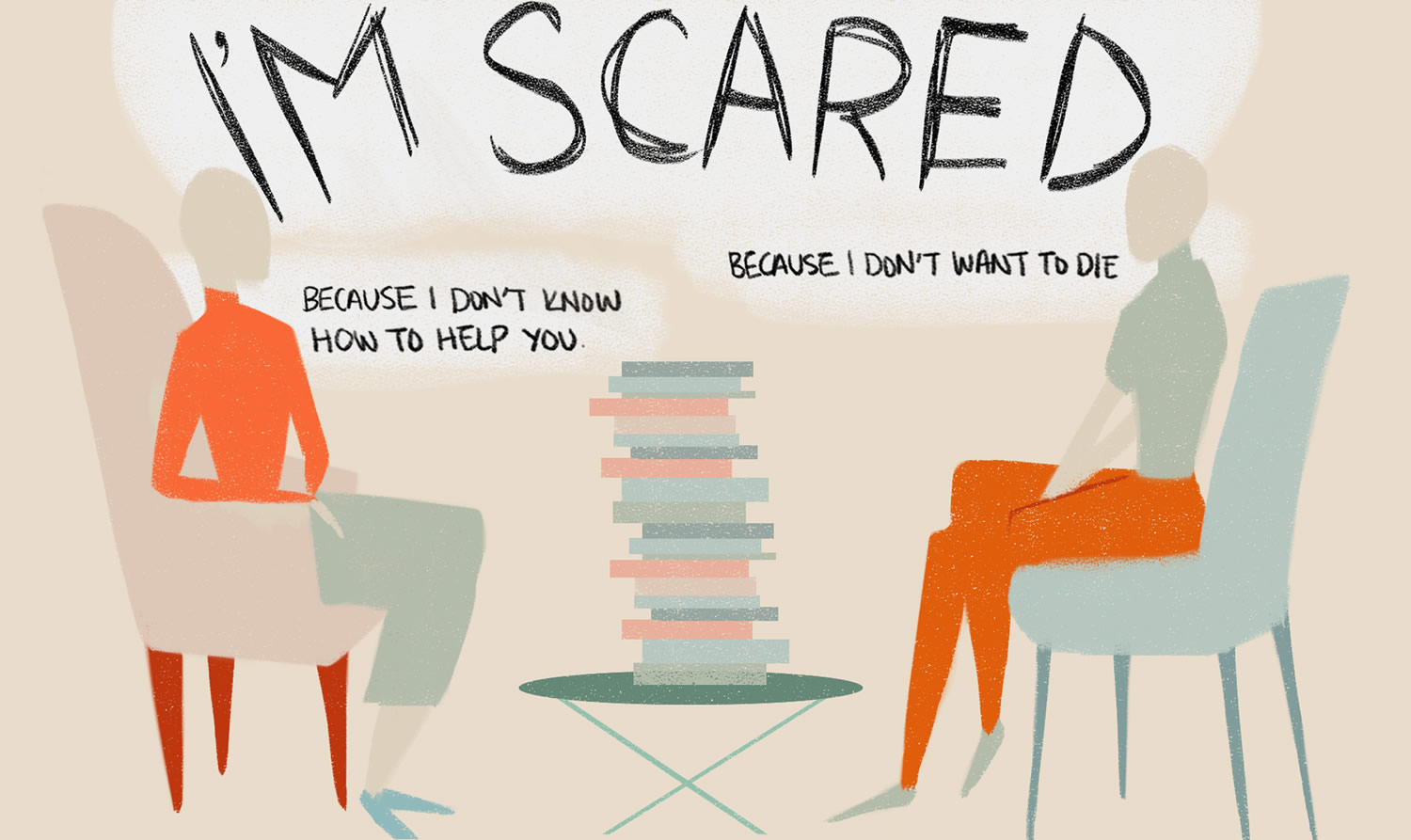Rates for death by suicide are on the rise and sadly, those we turn to for help have little to no formal training to effectively treat suicidal patients. The current state of suicide prevention is well illustrated in the image below.

USA Today recently published two articles that explore the challenges of training mental health professionals in preventing suicide and tips for suicidal people on how to find a qualified mental health professional. CAMS is one of only a few evidence and outcome-based treatments noted by the Joint Commission and included in both the Zero Suicide Toolkit and the CDC’s Preventing Suicide: A Technical Package of Policy, Programs and Practices.
Explore USA Today Articles on the Relationship Between Therapy & Suicide Prevention
Learn more about the challenges faced by both therapists and patients when it comes to managing & preventing suicidal ideation. Read the articles below to find out more.
We Tell Suicidal People to Go to Therapy. So Why Are Therapists Rarely Trained in Suicide?
Get the expert perspective on the importance of suicide prevention training and how it can be improved in the mental health field. Learn more about challenges that therapists face in identifying and treating patients with suicidal thoughts, including the stigma surrounding suicide and the lack of standardized suicide prevention training in graduate programs for mental health professionals. Read the article
How To Find a Therapist if You’re Suicidal
Find out about the importance of seeking professional help for those struggling with suicidal thoughts, and get practical advice on how to find a therapist who can provide effective, evidence-based support for suicidal ideation. Read the article
The CAMS Framework® of Suicide Assessment: Intervention, Prevention & Treatment Backed By 30 Years of Ongoing Clinical Research
CAMS-care (Collaborative Assessment and Management of Suicidality) offers several courses to mental health professionals to help them provide effective care to individuals with suicidal ideation.
Managing Suicidal Risk: A Collaborative Approach
The current edition of Dr. Jobes’ book, “Managing Suicidal Risk: A Collaborative Approach,” introduces the CAMS Framework for suicide prevention and therapy. The CAMS Framework is backed by decades of extensive research and emphasizes a collaborative approach to managing suicidal risk. The book provides evidence-based data and practical guidance on how to implement CAMS in clinical settings, making it an essential resource for mental health professionals seeking to provide effective care to individuals with suicidal ideation.
Suicide Prevention Video Training
CAMS-care provides video training opportunities for mental health professionals to effectively address malpractice and ethical liability issues when working with suicidal patients. The training covers essential topics, including how to deal with difficult patients and treating suicidal risk in children and adolescents. By providing comprehensive suicide prevention and therapy training, CAMS-care aims to equip mental health professionals with the skills and knowledge they need to provide effective care to individuals with suicidal ideation while minimizing malpractice and ethical liability risks.
Other Evidence-Based Suicide Prevention Training
CAMS consultants offer a range of suicide prevention and therapy training opportunities for mental health professionals. Their on-site Role-Play Training enables clinicians to practice using the CAMS approach with patients, while Education Days provide a broader audience with an understanding of the importance of evidence-based treatments in a system of care. Additionally, CAMS consultants offer Consultation Calls, which provide clinicians with the opportunity to ask questions and receive expert guidance when working with patients who have suicidal ideation. By offering these comprehensive training and consultation services, CAMS aims to equip mental health professionals with the skills and support they need to provide effective care to patients at risk of suicide.